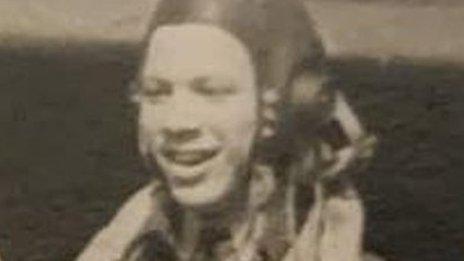Leeds exhibition opens honouring Jamaican World War Two veterans
- Published
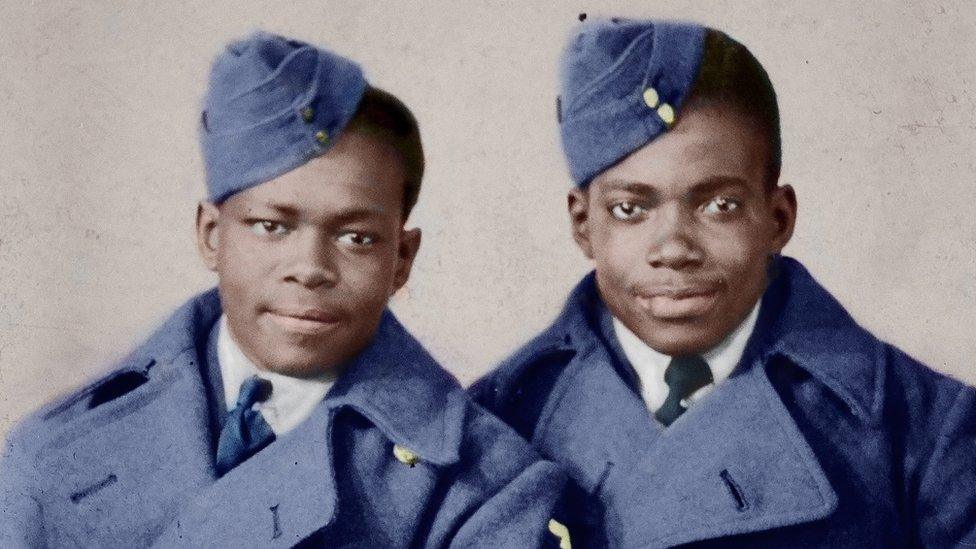
Alford Gardner, left, pictured with friend Dennis Reed during World War Two
Jamaicans who helped defend Britain during World War Two are the focus of a new exhibition.
King, Country and Homes opens at Leeds Central Library later and includes photographs, keepsakes and recollections.
Alford Gardner, 97, who is believed to be the last surviving Jamaican veteran in Leeds, is among those featured.
His son Howard said: "I hope this exhibition educates people."
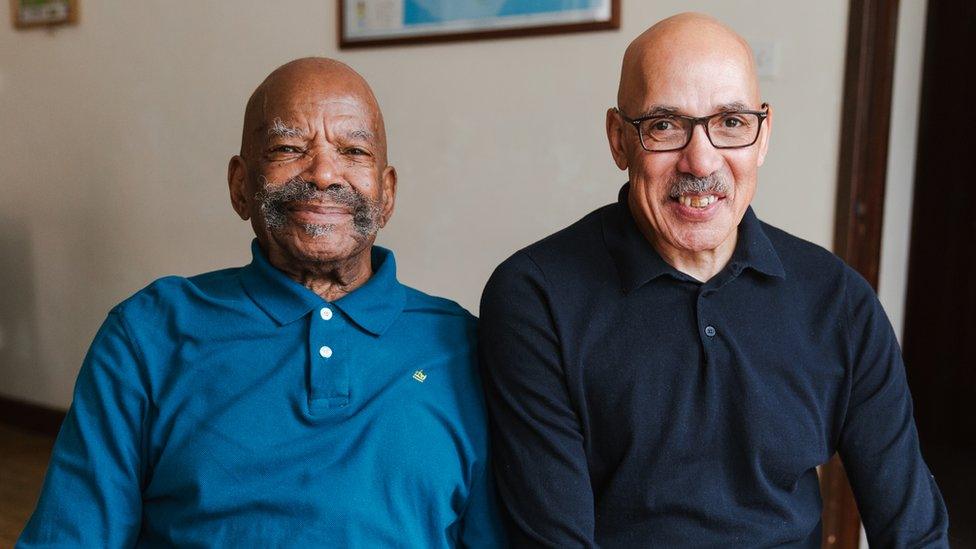
Alford Gardner, left, pictured with son Howard, returned to Leeds in 1948
Alford responded to an advert in Jamaica encouraging people to join the RAF. He arrived in England in June 1944 - three days before D-day.
After completing basic training in East Yorkshire, Alford was stationed in Gloucestershire where he worked as a mechanic repairing and maintaining vehicles.
After the war, he undertook an engineering training course in Leeds before being sent back to Jamaica at the end of 1947. Unable to find work, he returned to Britain in June 1948 aboard HMT Empire Windrush, settling in Leeds.
Mr Gardner stayed in engineering, married and started a family.
His family believes the exhibition tells a story that needs to be told.
Howard Gardner said: "It was very important work that they did because there weren't enough English people to do the jobs they were doing. For me, this story has been whitewashed out of the history of the war, nobody knows about it.
"I hope this exhibition educates people and reminds everyone what West Indians have done over the years."
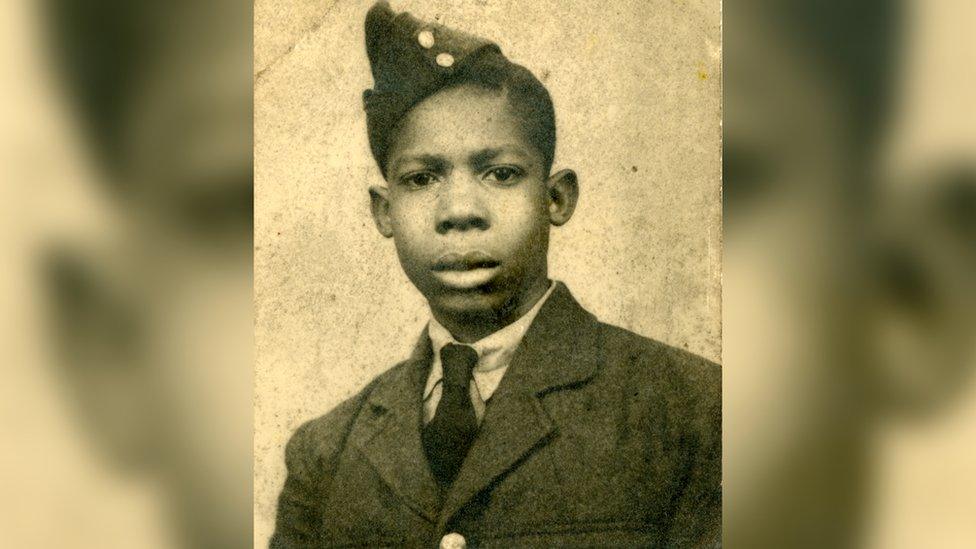
Errol James is an influential figure in Leeds' Jamaican community
Errol James is another World War Two veteran featured in the exhibition.
He gave up teacher training in Jamaica to join the war at 18, and like Alford, he too was among the first generation of West Indians to settle in Leeds after the war.
Errol's daughter Sue Holliday said: "A lot of them moved to Leeds and met and married white women which created an extra level of complexity to their lives.
"He was really proud to come here, and saw this as his home, and both me and my sister are very proud of him because he stood up and he was counted."
The exhibition forms part of the Out of Many Festival run by Jamaica Society Leeds and funded by the National Lottery Heritage Fund and Arts Council England.
Festival director Susan Pitter said: "It has been an honour to work with the children of Jamaican World War Two veterans to give an insight into the stories of their lives and their families.
"The significance of their service, joining the RAF as young men and teenage boys to fight a war thousands of miles away should not be underestimated.
"They were true pioneers who are too often unrecognised or under-valued."
The King, Country and Homes exhibition, which is free to view at Leeds Central Library, runs until 24 June.

Follow BBC Yorkshire on Facebook, external, Twitter, external and Instagram, external. Send your story ideas to yorkslincs.news@bbc.co.uk, external.
Related topics
- Published20 October 2022
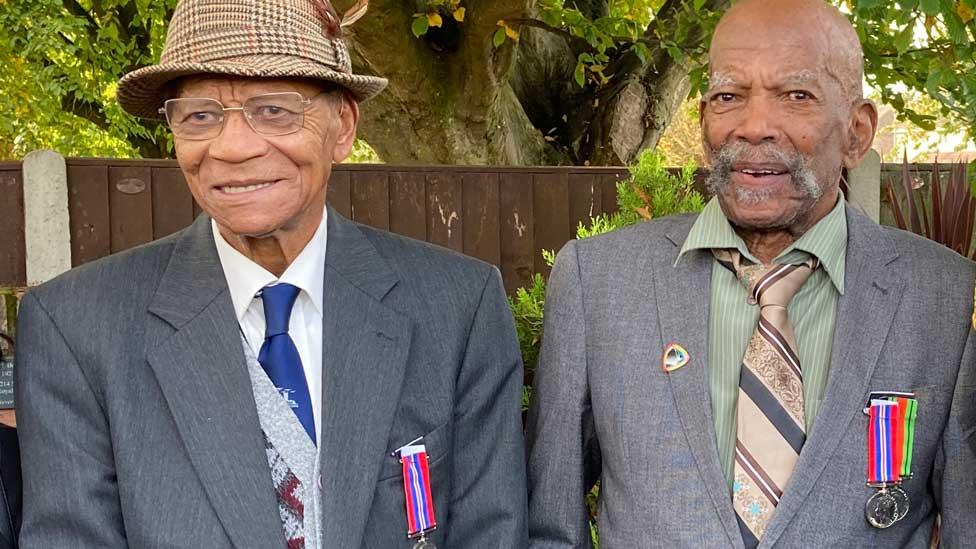
- Published6 May 2020
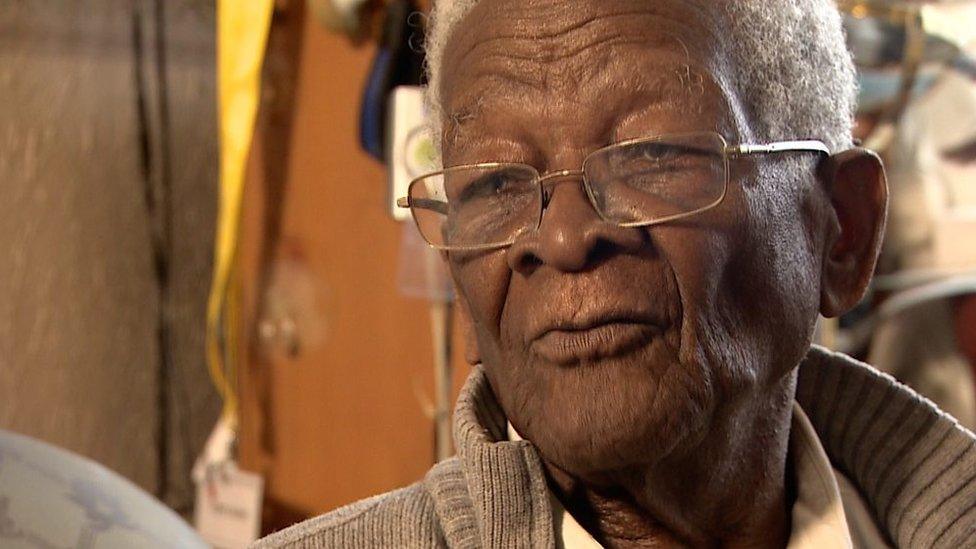
- Published21 June 2019
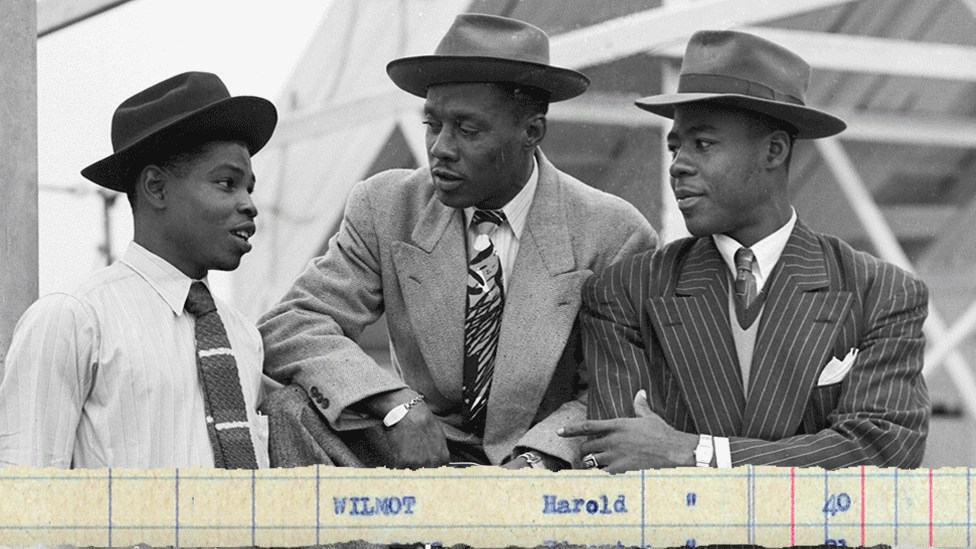
- Published25 March 2023
